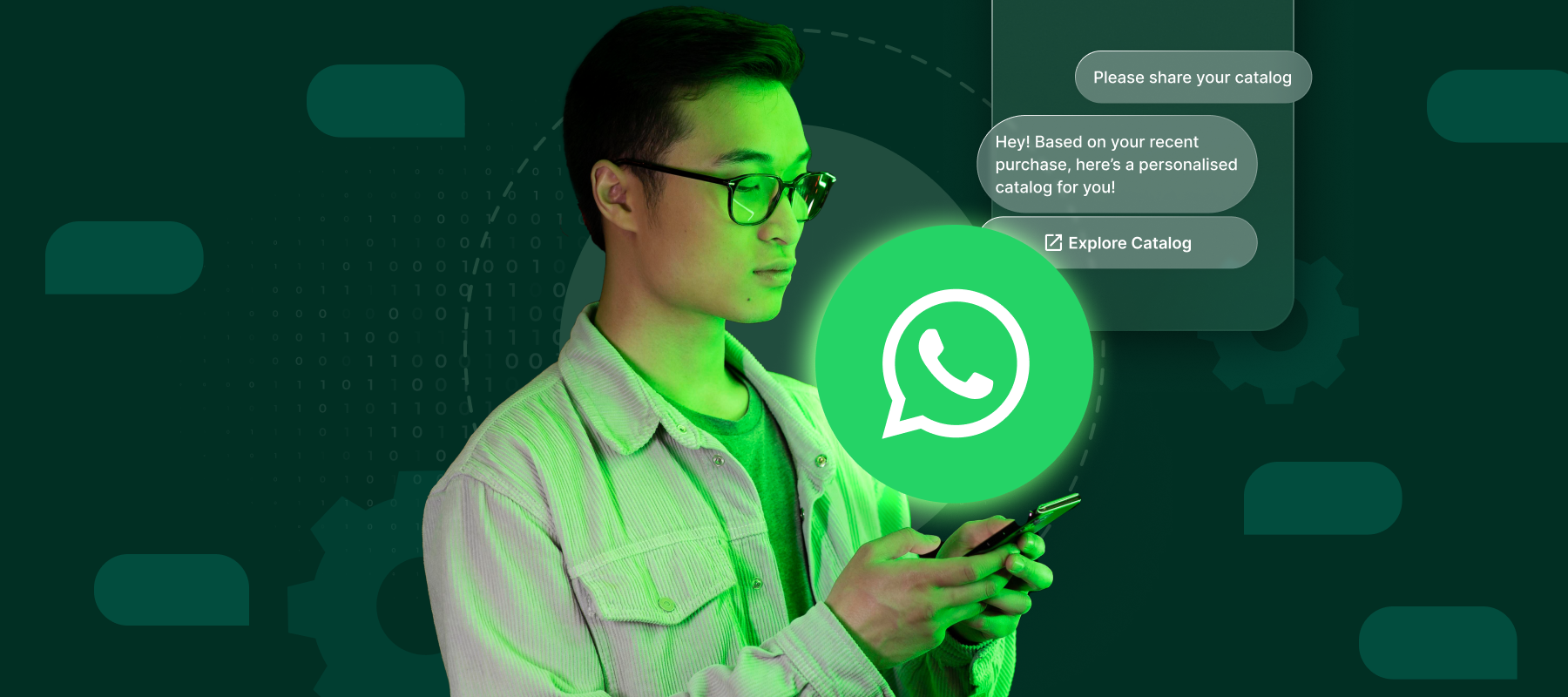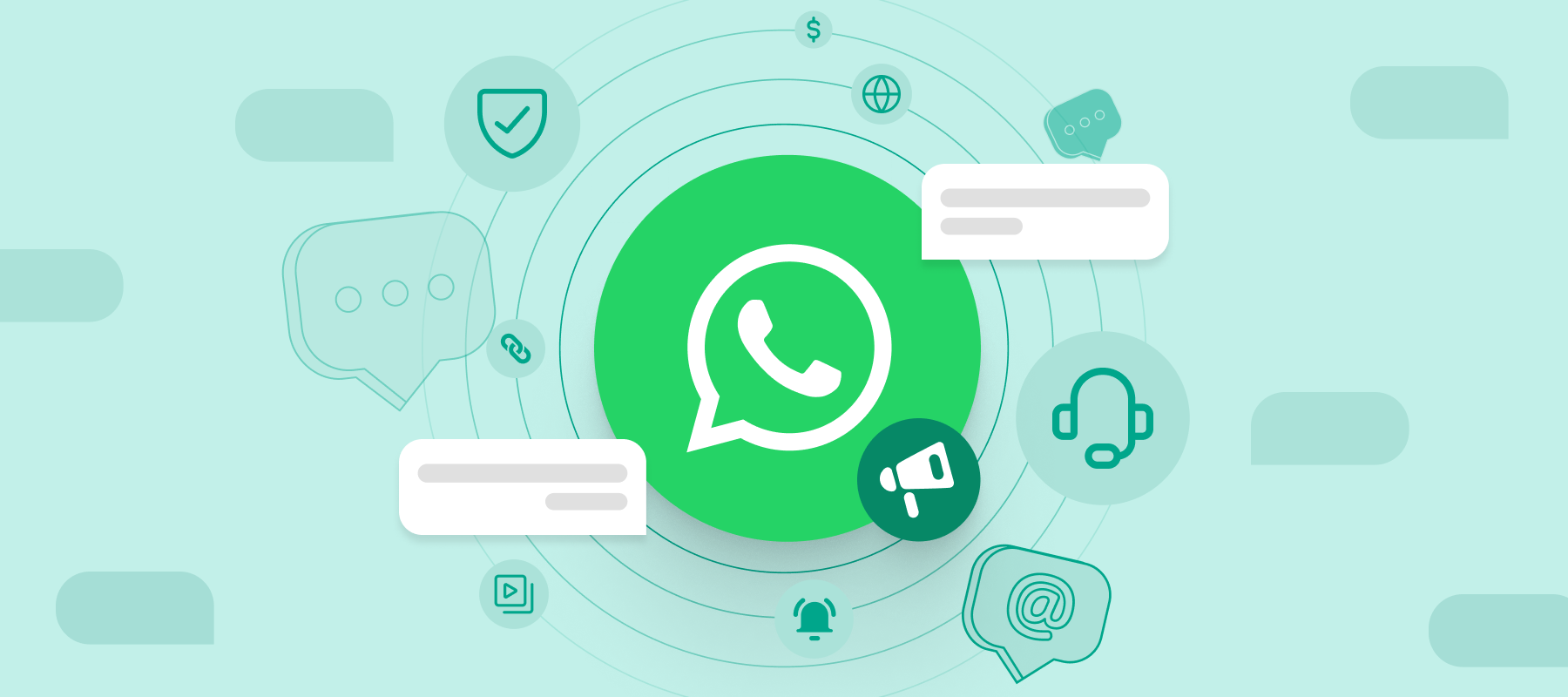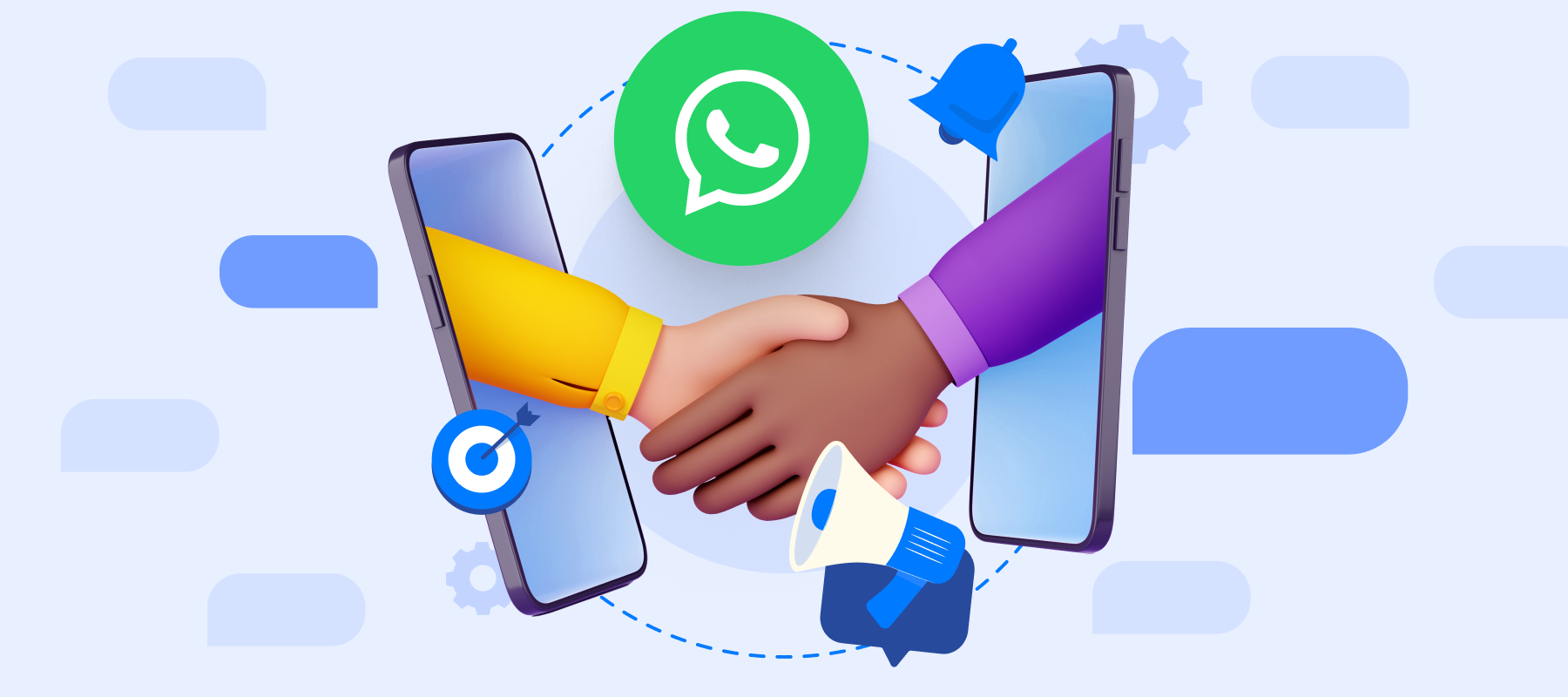Imagine connecting with your audience on a platform where 100 billion messages are exchanged daily.
That’s the kind of potential WhatsApp holds for businesses today.
With its incredible open and click-through rates, WhatsApp marketing is becoming the new favourite for digital outreach.
However, as more brands embrace WhatsApp, staying ahead is becoming increasingly challenging. Adapting to trends like personalisation and automation is therefore essential.
These shifts are redefining how businesses connect with their audience.
Ready to explore what’s next? Let’s dive in!
Emerging Trends in WhatsApp Marketing
Here are some of the WhatsApp marketing trends that are shaping the future:
1. Hyper-Personalization
Imagine receiving messages made just for you.
With 72% of consumers prefer personalised communication, businesses create content to match customer behaviour and past interactions.
AI-powered chatbots simplify this process by providing real-time, context-aware responses, making every conversation personal and engaging.
2. Integration with CRM Systems
Connecting WhatsApp with CRM tools makes managing customer relationships much easier. It helps businesses track conversations, gather insights, and handle leads smoothly.
In addition, automated follow-ups and updates speed up and organise the entire sales process, improving customers’ experiences.
3. Interactive Messaging with Rich Media
Rich media messaging takes engagement to the next level with features like carousels, buttons, and quick replies.
Brands use this to share product demos, catalogues, and personalised videos directly in chats, as this approach can increase customer engagement by up to 56%.
4. Click-to-Chat Features
Integrating “click-to-chat” links on websites, ads, and social media platforms enables customers to initiate WhatsApp conversations with a single click.
This feature is becoming popular because it improves engagement, especially when combined with Facebook and Instagram ad campaigns. Early tests showed conversion rates 2 to 10 times higher than traditional messaging methods.
5. Group Marketing and Communities
Brands use niche WhatsApp groups to share exclusive offers, gather feedback, and build communities. Broadcast lists enable segmented campaigns, helping businesses reach wider audiences without losing the personal touch.
6. Enhanced Automation with AI
AI tools are redefining how brands interact with customers. For instance, chatbots are projected to save businesses 2.5 billion hours. Beyond saving time, they offer 24/7 support, instant order tracking, and quick FAQ resolutions. Moreover, automation tools enable dynamic, lifecycle-based messaging, ensuring a smooth customer experience.
7. Focus on WhatsApp Commerce
Businesses are integrating WhatsApp into e-commerce, letting customers browse, shop, and pay directly in chat. The WhatsApp Business API simplifies order placements, payment confirmations, and delivery updates, making the shopping experience quick and convenient.
8. Data-Driven Campaigns
Brands are starting to use analytics to make WhatsApp campaigns smarter. They get a clear picture of what works by tracking open rates, click-through rates, and conversions.
A/B testing takes it further, allowing businesses to refine their messaging strategies and ensure every interaction brings better results.
9. Localised Marketing
Localised marketing has become essential for global success. In fact, 84% of marketers report that localisation positively impacts revenue growth.
By creating content in local languages and aligning promotions with regional holidays and events, brands create campaigns that resonate more deeply with diverse audiences, increasing engagement and business growth.
10. Proactive Customer Engagement
Proactive customer engagement means sending reminders, alerts, and promotions before customers ask. This approach builds stronger relationships and meets customer expectations.
Consumers appreciate receiving proactive notifications. By anticipating needs and initiating contact, businesses can enhance satisfaction and loyalty.
Implementing Future-Ready WhatsApp Marketing Strategies for Outreach
Let’s explore how businesses can adopt these emerging trends and strategies to make the most of WhatsApp marketing for effective outreach.
1. Leverage WhatsApp Business API for Scalability
The WhatsApp Business API is your best friend if you want to scale. It enables businesses to handle large-scale communication easily through automated responses and bulk messaging. Imagine sending real-time updates to thousands of customers simultaneously—efficient, right?
2. Embrace Hyper-Personalization
Personalisation is no longer a luxury; it’s an expectation. By analysing customer behaviour and preferences, you can create specific messages. For instance, sending a “We thought you’d love this” message with a product recommendation can make all the difference.
3. Enhance Engagement with Interactive Features
Interactive features like carousels, buttons, and quick replies improve customer interactions. For instance, imagine a food delivery service offering quick reply options like “Track Order” or “Speak to Support” within the chat. These features help customers immediately act, making the conversation intuitive and engaging.
4. Combine Click-to-Chat with Paid Ads
Why make customers search for you? Integrating “click-to-chat” links into your Facebook and Instagram ads lets users start a WhatsApp conversation instantly. For example, a clothing brand could use a “Message us now for the latest arrivals” link, bringing traffic directly to their WhatsApp chat.
5. Build Niche Communities
Want to build loyalty? Start niche WhatsApp groups to share exclusive deals and insights. It’s like inviting your customers into an inner circle where they feel valued. These groups are also great for collecting feedback and sparking discussions.
6. Implement AI-Powered Chatbots
AI-powered chatbots provide 24/7 support, answering FAQs, tracking orders, and suggesting products. They’re like your always-on customer service team, saving time while keeping customers happy.
7. Optimize for Local and Global Outreach
Localisation matters, whether sending promotions in local languages or timing campaigns around regional holidays and your approach to your audience’s culture can work wonders. For global campaigns, ensure consistency while tweaking messages to resonate locally.
8. Leverage Rich Media for Compelling Storytelling
Sometimes, words aren’t enough. Use rich media like videos, images, or carousels to tell your brand story. Imagine launching a new product with a short, engaging video shared directly in chat—it’s more memorable than plain text.
9. Adopt a Data-Driven Approach
Not sure if your campaigns are working? Analytics can help. Track open rates, click-through rates, and conversions to understand what resonates with your audience. For example, A/B testing can reveal whether a call-to-action like “Shop Now” performs better than “Discover More.”
10. Ensure Compliance and Opt-In Transparency
Trust is everything. Always follow WhatsApp’s guidelines for user consent and ensure opt-ins are explicit. A simple “Would you like to hear from us about exclusive offers?” can go a long way in building trust and keeping your audience engaged.
Conclusion
WhatsApp marketing is evolving faster than ever.
Falling behind could mean losing meaningful customer connections and growth opportunities.
That’s why choosing a solution provider that can scale and adapt effortlessly is crucial.
Don’t wait—start with Interakt today!







